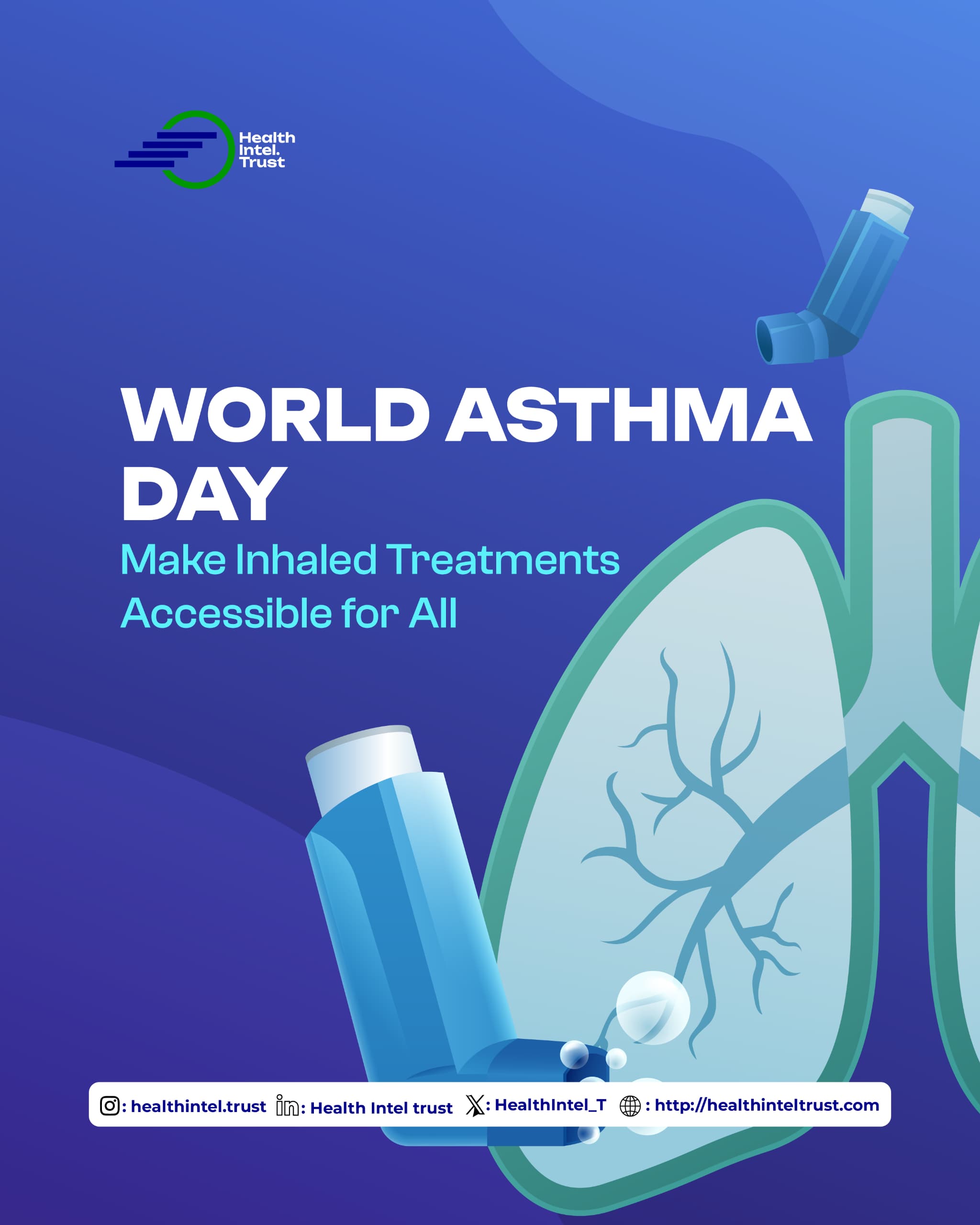
Twelve-year-old Clara lives in a small apartment in Lagos with her mother and brother. She’s bright, and dreams of becoming a doctor. But every now and then, something gets in the way of that dream. Something invisible, yet powerful enough to send her rushing to the hospital in the middle of the night.
On most days, she’s fine. But when the air is thick with dust or someone nearby is burning trash, she starts to wheeze. Her chest tightens, she can’t speak and she can’t breathe. Her mother, who works as a tailor, scrambles for an inhaler- if they still have one. It’s always a question of how long the inhaler will last and whether they can afford the next one.
Today, on World Asthma Day 2025 under the theme “Make Inhaled Treatments Accessible to All,” stories like Clara’s remind us that for millions across Nigeria and billions around the world, breathing freely is a privilege, not a right. The theme is more than a slogan. It’s a cry for fairness, for health equity, and for breath—something no one should have to fight for.
The Global Burden of Asthma
Asthma is a chronic respiratory disease that affects over 262 million people globally, according to the World Health Organisation (WHO). And each year, more and less than 455,000 of them die—many in low- and middle-income countries. It is one of the most common non-communicable diseases among children, yet it is often underdiagnosed and undertreated, especially in low- and middle-income countries. The tools to treat it, especially inhalers, already exist. They’re not some high-tech, futuristic invention. They’re small, portable, and life-saving.
Ironically, asthma is also one of the most treatable chronic diseases. Inhaled medications, particularly corticosteroids and bronchodilators, are proven to reduce symptoms, prevent attacks, and save lives. But for many, especially in resource-poor settings, access to these life-saving treatments is limited by cost, availability, and health system inefficiencies.
So why can’t everyone access them?
In Nigeria, it’s estimated that over 15 million people are living with asthma. Others know, but they can’t afford regular treatment. A basic inhaler can cost between ₦2,500 to ₦6,000, depending on where you live. For a family earning minimum wage or less, that’s simply out of reach.
Even in cities with good hospitals and pharmacies, inhalers can be hard to find. In rural areas, it’s even worse. A study published in The Lancet Global Health (2023) found that fewer than 30% of Nigerian asthma patients have consistent access to inhaled corticosteroids. In rural areas, this number drops even lower. Often, people rely on outdated treatments or unregulated herbal remedies that offer no relief and sometimes worsen symptoms. Not because they don’t trust medicine, but because medicine is far away or too expensive.
It’s Not Just a Nigerian Problem
Globally, the situation isn’t much better. According to the Global Asthma Network report in 2024, 90% of asthma deaths occur in low- and middle-income countries. It’s not because people in wealthier places don’t get asthma. It’s because when they do, they get the care they need.
Inhaled corticosteroids, “the gold standard for asthma control” are often missing in national drug lists. In many African, Asian, and Latin American countries, inhaled corticosteroids are classified as “unaffordable” by global health benchmarks. The result? Kids missing school. Adults missing work. Families spending nights in hospital waiting rooms, often unnecessarily.
Time to Act
World Asthma Day 2025 is a wake-up call, not just to raise awareness but to drive action. “Making inhaled treatments accessible to all” means:
- Expanding health insurance coverage to include chronic disease medications.
- Subsidising essential asthma treatments, especially for children and low-income populations.
- Training healthcare workers to diagnose and manage asthma effectively.
- Increasing public awareness to debunk myths and encourage early treatment.
- Building partnerships between governments, NGOs, and pharmaceutical companies to reduce costs and improve supply chains.
A Breath of Hope
There is hope. In cities like Ibadan and Abuja, pilot programs are offering free asthma screenings and subsidised inhalers. New mobile clinics are being deployed in rural areas to reach underserved communities. Digital health platforms are helping patients monitor their symptoms and refill prescriptions on time.
But these are still isolated efforts. For Clara and millions like her, hope must become policy. Breathing shouldn’t be a luxury. It should be a basic human right.
